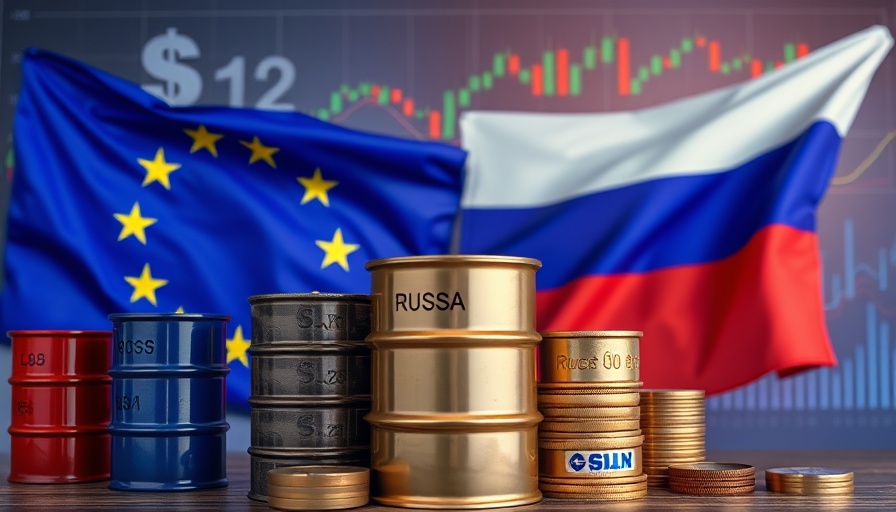
EU Moves Away from Russian Oil Price Cap: What It Means
In a significant policy shift, EU officials, led by President Ursula von der Leyen, announced that the bloc will abandon its plans for a new price cap on Russian oil. This decision comes in light of evolving geopolitical tensions and the complexities of the international energy market. With rising concerns regarding energy security and inflation, the EU’s decision prompts a reevaluation of how Europe approaches its oil imports amid the ongoing conflict in Ukraine.
The Broader Implications of Abandoning the Price Cap
The implications of this decision are far-reaching. Initially proposed as a measure to limit Russia’s oil revenue—crucial for funding its military actions—the price cap had intended to squeeze the Kremlin's finances while enabling European nations to continue imports. Reports indicate that rising oil prices and Russia's capacity to circumvent sanctions may have influenced the EU's change of heart. With energy demand soaring, particularly in winter, saving costs and securing supplies seem to have taken precedence.
Challenges and Complexities in the Energy Market
Europe has faced mounting challenges since the outbreak of war in Ukraine, with many nations striving to minimize dependence on Russian energy. However, this shift underscores the complexity of achieving energy stability without compromising economic integrity. Increased prices for alternative sources, including natural gas and oil from non-Russian suppliers, can lead to higher energy costs for consumers. A ripple effect may ensue, wherein rising costs could burden households and exacerbate inflation rates.
Comparing Europe's Situation with Global Market Trends
The decision to abandon the price cap echoes a sentiment felt in other countries examining their reliance on Russian resources. For instance, Asian nations that previously maintained strong trade ties with Russia now face alternatives amidst shifting alliances. As regional dynamics change, countries like India and China have emerged as critical players, continuing to engage with Russia for oil and energy supplies, potentially at a discount. This brings into question how Western countries can adapt to these evolving partnerships.
Future Predictions: What Lies Ahead
Looking ahead, analysts predict that the global energy market will undergo substantial changes. With the EU adjusting its energy strategies, other nations may follow suit. This could entail diversifying sources, innovating renewable energy technologies, and reinforcing commitments to energy efficiency. However, the immediate concern remains: will consumers bear the brunt of these newfound policies through continued price hikes?
Taking Action: What Can Individuals Do?
As the impacts of this tilt in policy unfold, individuals can prepare to navigate the complexities of rising energy prices. Monitoring news and adjusting personal budgets may become essential in coping with the immediate fallout. Advocating for policies supporting clean energy and shared resources might also bear long-term fruit. Engaging in community discussions about energy usage is crucial for collective action and sustainability.
Conclusion and Call to Action
In light of the evolving situation concerning European energy policy, staying informed about developments in the national and global landscape will be crucial. Individuals should consider educating themselves on effective energy practices and advocate for renewable energy initiatives. The implications of these decisions extend beyond geopolitical boundaries, affecting all of us as energy consumers. For more breaking news on national and international events, continue to follow reliable sources, engage with your community, and explore options to empower sustainable energy usage.
 Add Element
Add Element  Add Row
Add Row 



Write A Comment